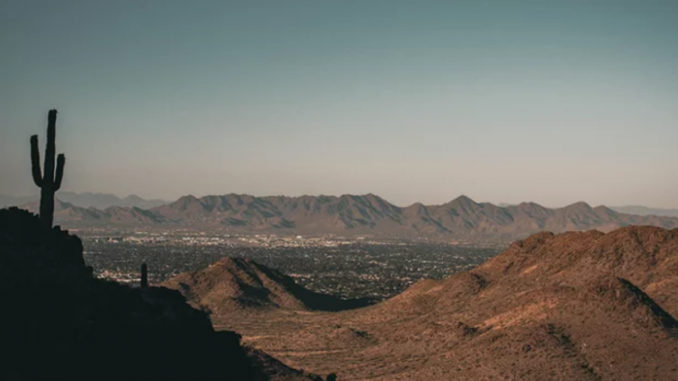
More than a thousand geographic features in the United States have racial slurs in their name. The slurs include derogatory terms for people who are Black, Indigenous, and of Asian descent and are used in names for small features across the landscape, like valleys, creeks, and lakes.
Now an open letter from four graduate students at the Massachusetts Institute of Technology is calling on geoscientists to support a recent bill in Congress to help remove the names. The Reconciliation in Place Names Act would give a federal board more power to change offensive place-names. The letter authors say that geoscientists must make the outdoors safe for people of color by removing harmful language that makes the profession less welcoming.
“There hasn’t been a push within the geosciences to figure out how we handle the fact that these are historical names,” said coauthor Meghana Ranganathan, who studies Antarctic ice sheets. The group became aware of the issue after one encountered a racial slur on a geologic map.
“These place-names serve a silent, yet visibly obtrusive and constant reminder of the deeply rooted white supremacist ideologies that continue to haunt many of these landscapes,” said Tamara Pico, one of the more than 400 scientists who have signed the letter.
A Legacy of Oppression Written on the Land
An investigation in 2015 by the data-mining company Vocativ found 1,441 federally recognized place-names that contained slurs. Every state contains at least one, and Western and Southern states had the most instances.
Vocativ found at least 558 places across the United States that have offensive words for Black people, including the words “Negro,” “Uncle Tom,” and “Jim Crow.” They also found derogatory names for Asian Americans. By far the most common term was the slur “Squaw,” considered an offensive term for Indigenous women, which appears on the map 828 times.
“A lot of [the offensive names] are in places where a lot of science is being done, which is why this became something that we thought would be a great way for the geoscience community to get behind the bill because it is relevant to all of us,” Ranganathan said.
A Racist Slur in a New Mexican Canyon
The letter came about from the experience of letter writer Julia Wilcots, who was surprised to see a racist name used in a place-name for a canyon in New Mexico at one of her potential field sites. The canyon was identified as “(N-word) Ed Canyon.”
Although the U.S. Board on Geographic Names removed all instances of this particular word in 1963 (as well as a slur for Japanese people in 1974), the predominant geologic map of the area was published before the name change. Wilcots found at least 11 instances of the slur in the scientific report. The feature’s formal name today is Negro Ed Canyon.
With help from a lab partner, Wilcots redacted all instances of the slur in the document, changing it to “Ed Canyon,” and shared it with her adviser, who passed it along to colleagues.
Wilcots urges others to redact racist slurs from their research materials as an act of anti-racism.
“You could say, ‘I’m not going to be racist myself. When I write my paper about this area, I’m not going to use the N-word. I’m going to use the formal name on the map,’” she said. But that doesn’t go far enough to protect researchers of color, she explained.
“I’m pretty fully committed to geology, and this hasn’t deterred me from continuing in the field. It’s emboldened me to be more outspoken in the field,” Wilcots said. “But I think people should recognize that…if you hand this map to a Black student who is considering geosciences and it’s full of the N-word, you know that has an impact.”
Proposed Bill Would Streamline Name Changes
In September 2020, then New Mexico Congresswoman Deb Haaland (D) and Texas Congressman Al Green (D) introduced a bill that would speed up name changes. Haaland was sworn in on 16 March to lead the Department of the Interior under the Biden administration, the first Native American to do so.
The U.S. Board on Geographic Names handles alterations to names, but the board can’t actively seek out names to change: They merely review proposals and are not a rubber stamp for submitted changes. The board blocked the state of Texas from removing the word “Negro” from nearly two dozen place-names, for instance, because of the lack of both local support and a historical connection to the new names.
Instead of relying on proposals to the board, the new bill creates an advisory committee that will seek out offensive names to change. People appointed to the committee will have backgrounds in civil rights and race relations, as well as come from tribes or tribal organizations. The committee will be required to make recommendations to the board, thus speeding up the process.
“It’s past time to change the offensive names of public lands, especially with input from groups who have been discriminated against,” said Haaland, a member of New Mexico’s Laguna Pueblo. The bill targets names with racial slurs as well as places named in honor of individuals who “held racially repugnant views, committed atrocities against Native Americans, or supported or effectuated discriminatory policies,” stated the bill.
Name changes can be simple, said Ranganathan. In Utah, the board approved changing the name of Negro Bill Canyon to Grandstaff Canyon in 2017. William Grandstaff was a mixed-race rancher in the area for whom the canyon was named.
“It still honors the person that the canyon was originally named after,” Ranganathan said, “but it does so in a way that is not offensive.”
*story by EOS


